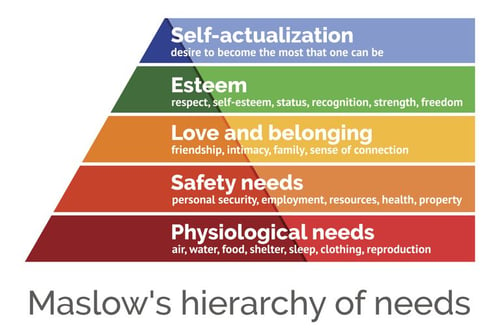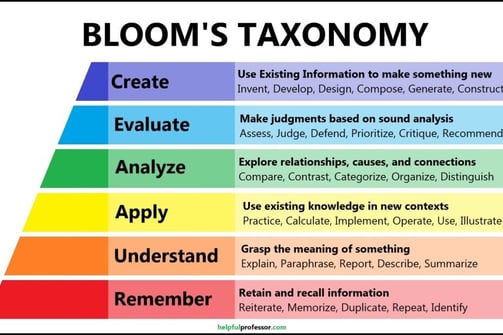Love to learn - and do it well
Preparation TIPS for an upcoming course
Make the most out of this opportunity
For delegates & trainers
The role of 'forgetting' in learning. A powerful concept.
Knowledge can sometimes be problematic - and dare I say it - have NO value.
In fact, I would go as far as to say that it can even be WORSE than having no value. Didn't expect me to say that eh?
Old knowledge can be incorrect, leading to errors ("l do loads of India consultations, I know the maps by now so I'll just skip the database check and advise from memory- Chloroquine will do the job"- ooops, those recommendations have changed and now the wrong malaria tablets have been given...)
Old knowledge can be redundant, taking up 'brain-space', hindering performance and the time it takes to solve a problem ("but HPV is two doses right? Or is it 3? Used to be 3... when it came out it was 3...errr" )
Old knowledge can be harmful when patients are involved in these consequences ("When I learned on the job 20 years ago my mentor told me not to clean the skin before performing phlebotomy." Now a patient has phlebitis...)
My first tip:
Prepare to let go.
Go into any 'update' courses ready to forget as well as learn.
When psychology and learning styles collide...
Don't give up. With the right strategy you can do anything!
This is a really good quiz to take if you want to reflect on how you learn best and also how your personality impacts your learning. Based on one of my favourite ever psychologist, Carl Jung. Check it out!
Reflecting on your learning style and preferences helps you to find the best way for you to learn new material - but most importantly - to enjoy it in the process. I am a 'visual INFP' learner and as a tutor I have to be very conscious about not just teaching in a style that suits me. It's not for everyone. So because of that I try to vary my teaching methods as much as possible. if you are struggling to learn something have a dabble with different methods. Not everything goes in first time!


If you have been on one of my virtual courses before you will have heard me say 'get the snacks out, get comfy, get the dog on your lap' and other sentiments to this effect. I take time to say hi to everyone too. The same applies to classroom courses.
Why do I do this?
I want you to feel relaxed. If you have not got your basic needs met for safety, security and a sense of connection then your learning will be impacted. Learning should be fun and relaxed. People often start a virtual course in a bit of a panic having wrestled with technology just to join the class. I don't want anyone panicking on my courses. We all have tech issues from time to time. And no-one learns when they are stressed out or a bit 'hangry'. Bring on the snacks!


Levels of Learning
Repeating facts is not a deep level of learning. A course with lots of information is just the starting point.
One of the biggest questions I get asked on courses is 'can I do [insert thing here] now I have my certificate?'.
My answer usually starts with; 'a certificate is just a bit of paper'. See this blog for more info.


Dyslexia & neurodiversity in the workplace and on training courses
I'm no expert here but what I DO Know is that life becomes generally harder to navigate when there's a learning difficulty in tow.
I also know that when I was a lecturer in an FE college, the very FIRST thing we did was assess people's needs and make adjustments all over the place to ensure they had a happy educational experience.
THIS priority often comes to a grinding halt once people enter the workplace. Some adults don't even know they have extra needs in the first place. Late or delayed diagnosis is not uncommon. Some people go through their whole lives only to find out much later on that they have been living with Dyslexia, Dyspraxia, Dyscalculia, or ADHD.
Here are some useful practical links if you or a colleague appears to be struggling:
https://www.bdadyslexia.org.uk/ This is how they describe themselves: "The British Dyslexia Association (BDA) is the voice of dyslexic people. We aim to influence government and other institutions to promote a dyslexia friendly society that enables dyslexic people of all ages to reach their full potential.". Nice aims!! And some useful info on the website too around learning and workplace adjustments. See https://www.bdadyslexia.org.uk/advice/employers/how-can-i-support-my-dyslexic-employees/reasonable-adjustments-in-the-workplace
https://www.inclusiveemployers.co.uk/blog/understanding-dyslexia-in-the-workplace/ A very useful bit of information defining 'learning difficulties' and tips for inclusivity in the workplace.
How neurodiversity-friendly is your clinic? Is it time you considered some workplace training for you and your team?
Dyslexia and me: ‘Don’t let your differences stop you’. District nurse Teresa was diagnosed with dyslexia as an adult. She shares her strategies for success in work.


Neurodiversity in medical education. Suggested reading:
Hedlund A. (2023) Autistic Nurse: Do they exist? British Journal of Nursing 32 (4) 210-214
Major R. & Tetley J. (2010) Effects of Dyslexia on Registered Nurses in Practice Nurse Education in Practice 35, 7-13
Moore A. (2021) Diversity in nursing: why it’s time to think neurodiversity. Nursing Standard 36 (1) 67-69
Royal College of Midwives (2024) Neurodivergence Acceptance Toolkit. Royal College of Midwives
Royal College of Nursing (2022) Neurodiversity Pocket Guide. Royal College of Nursing
White J.F. (2024) Neurodiversity & nursing: Reflection of a final year general nursing student. Nurse Education Today https://doi.org/10.1016/j.nedt.2024.106318


Bad experience on a course?
Are you a tutor who is dealing with negative feedback?
Want a hand with reflecting on it whist being kind to yourself?








